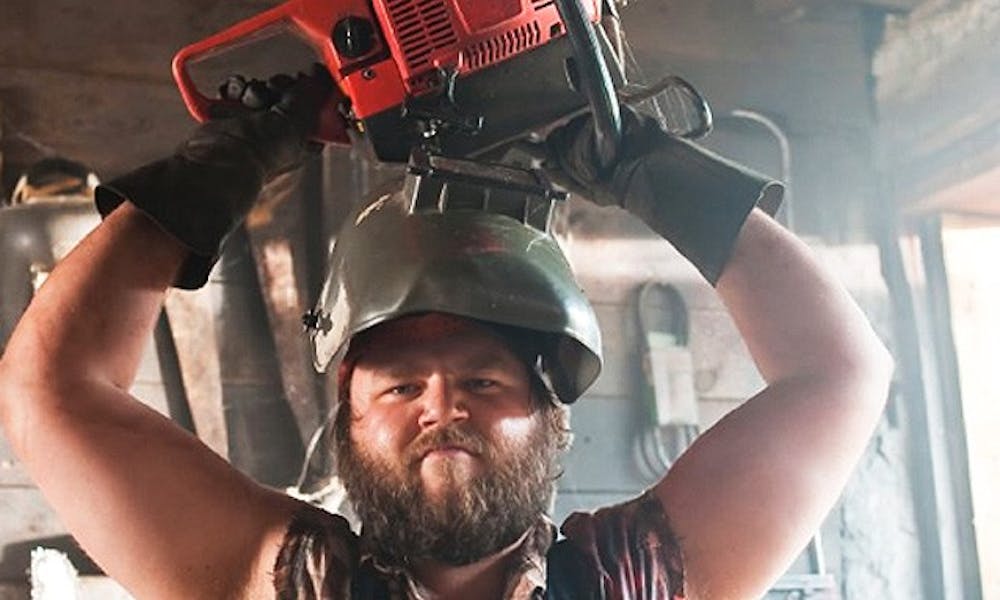What if Jason just wanted to clean up his camp, or if Deliverance was just based on a comic misunderstanding? This is more or less the central and hilarious inspiration behind Director Eli Craig’s Tucker and Dale vs. Evil.
Alan Tudyk (Firefly, Suburgatory) and Tyler Labine (Reaper) play a pair of good-hearted country folk—Tucker and Dale, respectively—who set out to renovate Tucker’s new cabin in the woods. While there, they meet a group of vacationing college kids who more or less spend their time being “college kids in a horror movie.” From their first meeting, in which Dale tries awkwardly to talk to popular and attractive Allison (30 Rock’s Katrina Bowden) with a rusty scythe in his hand, it’s obvious that socioeconomic status is not the only difference between these two parties: Tucker and Dale, for one thing, watch too few horror movies, and the clan of forgettable college kids watches way, way too many.
The film is shot and scored in such a way so as to highlight this divide, evoking at times the feel of either classic slasher or romantic comedy. Craig adjusts his approach from scene to scene, employing characteristic lighting and musical cues to jump from one genre to the other and back. The result is the construction of two separate takes on the same narrative: Dale views his adventure as an innocent one, while the college kids believe they are fighting for their lives. Both of these spins are completely believable from the viewpoints of the parties involved, but the whole truth (as well as the brilliant comedy) lies in the integration of the two. After all, Tucker and Dale are quite obviously not a part of the innocuous tale they perceive, and the terrified college kids really have nothing to fear—at least, right up until they start accidentally offing themselves in episodes of gory slapstick.
Horror films, though, are always about something more than murders in the woods, and Tucker and Dale is no different. Classism and elitism—from the college kids’ innate fear of the hillbillies to redneck Dale’s sense of his own inferiority in relation to beautiful, well-educated Allison—are on display in the film, and work toward a sense of opposition to higher education. Dale stands out as the smartest character in the movie, even if he is the only one unable to mediate therapy sessions and diagnose Stockholm Syndrome on the basis of something “heard in Sociology class.”
Tucker and Dale vs. Evil may be the first movie since Fargo to put a character through a wood chipper. It won’t surprise anyone familiar with the Coen brothers, then, that this turns out to be a pretty ideal example of how to do grisly comedy right.
Get The Chronicle straight to your inbox
Signup for our weekly newsletter. Cancel at any time.

